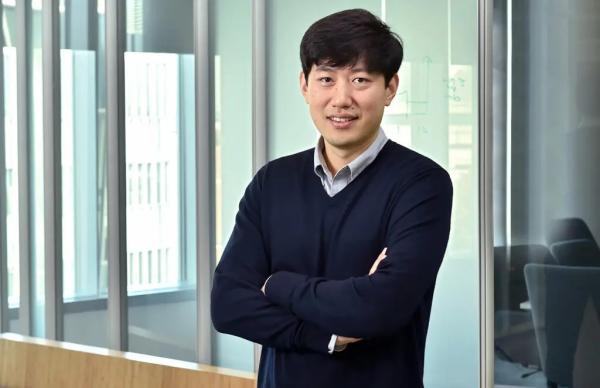
Associate Professor of Chemical Engineering Xi Chen, the project's principal investigator
Researchers from The City College of New York and other institutions, including CUNY’s Advanced Science Research Center, are the beneficiaries of a $650,000 grant from the National Science Foundation (NSF) to develop evaporation-driven generators that can produce clean, renewable energy.
The one-year grant, “Track M: Water-responsive Materials for Evaporation Energy Harvesting,” is part of the NSF’s Convergence Accelerator. Launched in 2019, these Convergence Accelerator grants build upon basic research and discovery to accelerate solutions toward societal impact. The program funds teams to solve challenges through convergence research and innovation. To enhance its impact, the Accelerator also places teams together in cohorts, synergizing their work through facilitated collaboration.
The project’s principal investigator is Associate Professor of Chemical Engineering Xi Chen. Co-principal investigators are Professor of Chemical Engineering Raymond Tu, Associate Professor of Architecture Ahu Aydogan, and Professor and Chair of Political Science Daniel Disalvo. The team includes scientists from Hunter College, Columbia University, New York University’s Tandon School of Engineering, and the National Renewable Energy Laboratory’s Strategic Energy Analysis Center.
Representing expertise from a wide variety of disciplines from across New York City, with participants from industry, including GE Research, Cannon, Ginkgo Bioworks, and ISEE Systems, the team aims to make transformative progress on a new evaporation energy harvesting technique based on water-responsive materials, making it efficient and practical for real world use.
This technique entails using the generators to employ the water-responsive materials, which deform rapidly and powerfully in response to humidity changes, a basic process in the global climate system. The ambitious research effort aims to produce prototypes within the next year and conduct product demonstrations for organizations and companies by the third year.
“Water responsiveness is a new technology that seeks to capture evaporation as an energy source,” said Tu. “Most people are comfortable with the concept of converting solar into a potential energy source. Similarly, one of our goals in our research is to effect a paradigm shift in which people also think of evaporation as an energy source.”
Over the next nine months, the Phase 1 team will refine their initial idea into a proof of concept, identify team members and partners, and actively participate in the Convergence Accelerator's Phase 1 innovation curriculum. This curriculum encompasses crucial fundamentals in human-centered design, team science, use-inspired research, early-state prototyping, and effective communication, storytelling and pitching. As Phase 1 concludes, the teams will participate in a formal Phase 2 proposal and pitch to demonstrate the viability of their solutions. Teams selected for Phase 2 will continue in the NSF Convergence Accelerator program.
“Our aim of this one-year Phase 1 project is to establish platforms for the design and manufacturing of WR materials and to develop preliminary physical prototypes and simulation models of evaporation energy harvesting devices.” said Chen. “Though this technology is in its infancy, it holds the potential to revolutionize the clean energy sector by providing an efficient, abundant, and cost-effective alternative to fossil fuels.”
About The City College of New York
Since 1847, The City College of New York has provided a high-quality and affordable education to generations of New Yorkers in a wide variety of disciplines. CCNY embraces its position at the forefront of social change. It is ranked #1 by the Harvard-based Opportunity Insights out of 369 selective public colleges in the United States on the overall mobility index. This measure reflects both access and outcomes, representing the likelihood that a student at CCNY can move up two or more income quintiles. Education research organization Degree Choices ranks CCNY #1 nationally among universities for economic return on investment. In addition, the Center for World University Rankings places CCNY in the top 1.8% of universities worldwide in terms of academic excellence. Labor analytics firm Lightcast puts at $3.2 billion CCNY’s annual economic impact on the regional economy (5 boroughs and 5 adjacent counties) and quantifies the “for dollar” return on investment to students, taxpayers, and society. At City College, more than 16,500 students pursue undergraduate and graduate degrees in eight schools and divisions, driven by significant funded research, creativity, and scholarship. In 2023, CCNY launched its most expansive fundraising campaign ever. The campaign, titled “Doing Remarkable Things Together,” seeks to bring the College’s Foundation to more than $1 billion in total assets in support of the College's mission. CCNY is as diverse, dynamic, and visionary as New York City itself. View CCNY Media Kit.
Syd Steinhardt
212-650-7875
ssteinhardt1@ccny.cuny.edu